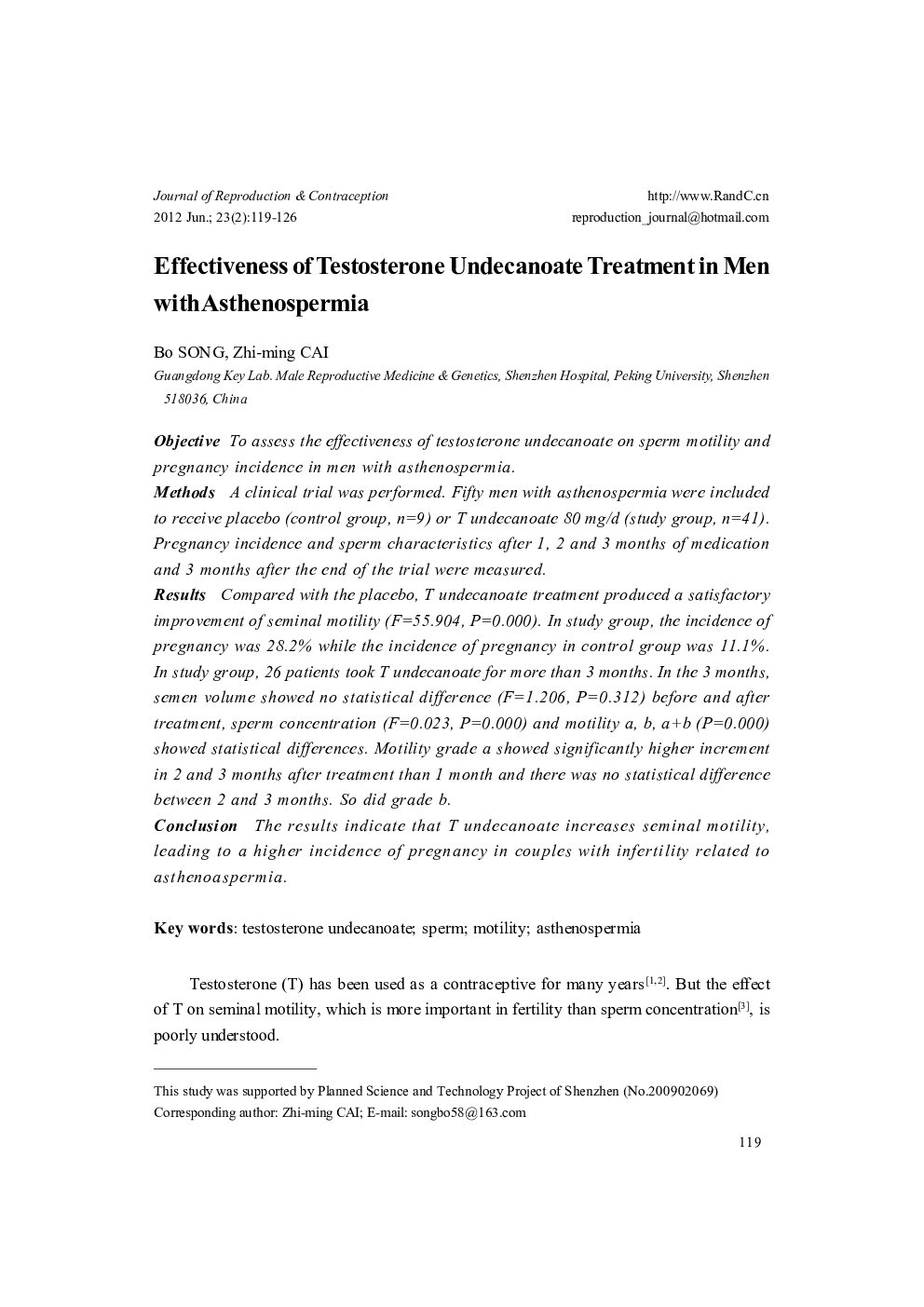| Article ID | Journal | Published Year | Pages | File Type |
|---|---|---|---|---|
| 3963960 | Journal of Reproduction and Contraception | 2012 | 8 Pages |
ObjectiveTo assess the effectiveness of testosterone undecanoate on sperm motility and pregnancy incidence in men with asthenospermia.MethodsA clinical trial was performed. Fifty men with asthenospermia were included to receive placebo (control group, n=9) or T undecanoate 80 mg/d (study group, n=41). Pregnancy incidence and sperm characteristics after 1, 2 and 3 months of medication and 3 months after the end of the trial were measured.ResultsCompared with the placebo, T undecanoate treatment produced a satisfactory improvement of seminal motility (F=55.904, P=0.000). In study group, the incidence of pregnancy was 28.2% while the incidence of pregnancy in control group was 11.1%. In study group, 26 patients took T undecanoate for more than 3 months. In the 3 months, semen volume showed no statistical difference (F=1.206, P=0.312) before and after treatment, sperm concentration (F=0.023, P=0.000) and motility a, b, a+b (P=0.000) showed statistical differences. Motility grade a showed significantly higher increment in 2 and 3 months after treatment than 1 month and there was no statistical difference between 2 and 3 months. So did grade b.ConclusionsThe results indicate that T undecanoate increases seminal motility, leading to a higher incidence of pregnancy in couples with infertility related to asthenoaspermia.
